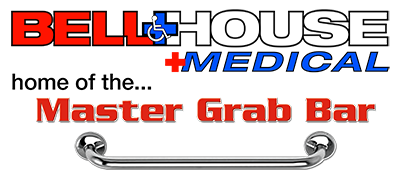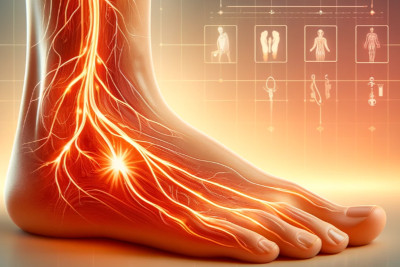Understanding Neuropathy: Causes and How Medical Devices Can Help
Mon, Jun 3rd, 2024
Neuropathy, often referred to as peripheral neuropathy, is a condition that affects the peripheral nerves, which are responsible for transmitting signals between the central nervous system (the brain and spinal cord) and the rest of the body.
This condition can cause a range of symptoms, including pain, numbness, tingling, and muscle weakness, primarily in the hands and feet. Understanding the causes of neuropathy and how medical devices can aid in its management is crucial for improving the quality of life for those affected.
Causes of Neuropathy
Neuropathy can result from various factors, and understanding these causes is key to effective management and treatment. The most common causes include:
Diabetes: Diabetic neuropathy is one of the most common types, resulting from prolonged high blood sugar levels that damage nerves over time. It often affects the legs and feet and can lead to severe complications if not managed properly.
Infections: Certain viral and bacterial infections can lead to neuropathy. For example, infections like shingles, Lyme disease, and HIV can damage peripheral nerves.
Autoimmune Diseases: Conditions such as rheumatoid arthritis, lupus, and Guillain-Barré syndrome can cause the immune system to attack peripheral nerves, leading to neuropathy.
Trauma or Injury: Physical injuries from accidents or surgeries can damage nerves. Repetitive stress injuries, such as carpal tunnel syndrome, also fall into this category.
Chemotherapy: Cancer treatments, particularly chemotherapy, can cause peripheral neuropathy as a side effect. This is known as chemotherapy-induced peripheral neuropathy (CIPN).
Nutritional Deficiencies: Deficiencies in vitamins, particularly B vitamins, can lead to nerve damage. A well-balanced diet is crucial for nerve health.
Alcoholism: Chronic alcohol abuse can result in nutritional deficiencies and direct nerve damage, leading to alcoholic neuropathy.
Genetic Disorders: Some inherited conditions, like Charcot-Marie-Tooth disease, can cause peripheral neuropathy.
How Medical Devices Can Help Manage Neuropathy
Medical devices play a crucial role in managing the symptoms of neuropathy and improving the quality of life for patients. These devices can help alleviate pain, improve mobility, and prevent further complications. Here are some key medical devices used in the management of neuropathy:
Transcutaneous Electrical Nerve Stimulation (TENS) Units: TENS units use low-voltage electrical currents to relieve pain. Electrodes are placed on the skin near the painful area, and the electrical impulses help to block pain signals from reaching the brain. This can provide significant pain relief for neuropathy patients.
Foot Care Devices: For those with diabetic neuropathy, proper foot care is essential to prevent ulcers and infections. Specialized footwear, such as diabetic shoes and custom orthotics, can help reduce pressure on the feet and prevent injuries. Additionally, foot massagers can improve circulation and provide relief from pain and discomfort.
Compression Garments: Compression socks and gloves can help reduce swelling and improve blood flow in the extremities. This can be particularly beneficial for individuals with neuropathy caused by poor circulation.
Balance and Mobility Aids: Neuropathy can affect balance and coordination, increasing the risk of falls. Devices like canes, walkers, and stability trainers can help improve balance and provide support, enhancing mobility and safety.
Heating Pads and Cold Therapy: Applying heat or cold to affected areas can provide relief from neuropathy symptoms. Heating pads can soothe sore muscles and improve blood flow, while cold packs can reduce inflammation and numb pain.
Foot Baths: Foot baths with warm water and Epsom salts can help relax muscles, improve circulation, and provide pain relief. Some foot baths also come with massage features to enhance the therapeutic effect.
Laser Therapy Devices: Low-level laser therapy (LLLT) devices use light to penetrate tissues and promote healing at the cellular level. This can help reduce pain and inflammation associated with neuropathy.
Benefits of Using Medical Devices for Neuropathy
The use of medical devices in managing neuropathy offers several benefits:
Non-Invasive Pain Relief: Many medical devices, such as TENS units and heating pads, provide non-invasive pain relief without the need for medication. This is particularly beneficial for individuals looking to avoid the side effects of pain medications.
Improved Mobility and Independence: Devices like balance aids and specialized footwear can enhance mobility, allowing individuals with neuropathy to maintain their independence and perform daily activities more safely.
Enhanced Blood Circulation: Compression garments and foot massagers can improve blood flow, reducing symptoms like swelling and discomfort and promoting overall nerve health.
Preventing Complications: Proper foot care devices and balance aids can help prevent complications such as ulcers, infections, and falls, which are common concerns for neuropathy patients.
Tailored Therapy Options: With a variety of medical devices available, individuals can find tailored solutions that address their specific symptoms and needs, leading to more effective and personalized management of neuropathy.
Neuropathy is a complex condition with various causes, but the right medical devices can make a significant difference in managing its symptoms. From pain relief to improved mobility and prevention of complications, these devices offer invaluable support for individuals living with neuropathy. If you or a loved one is dealing with neuropathy, consider exploring these medical devices and consult with healthcare professionals to find the best solutions for your needs. By incorporating these devices into your care routine, you can enhance your quality of life and better manage the challenges associated with neuropathy.






